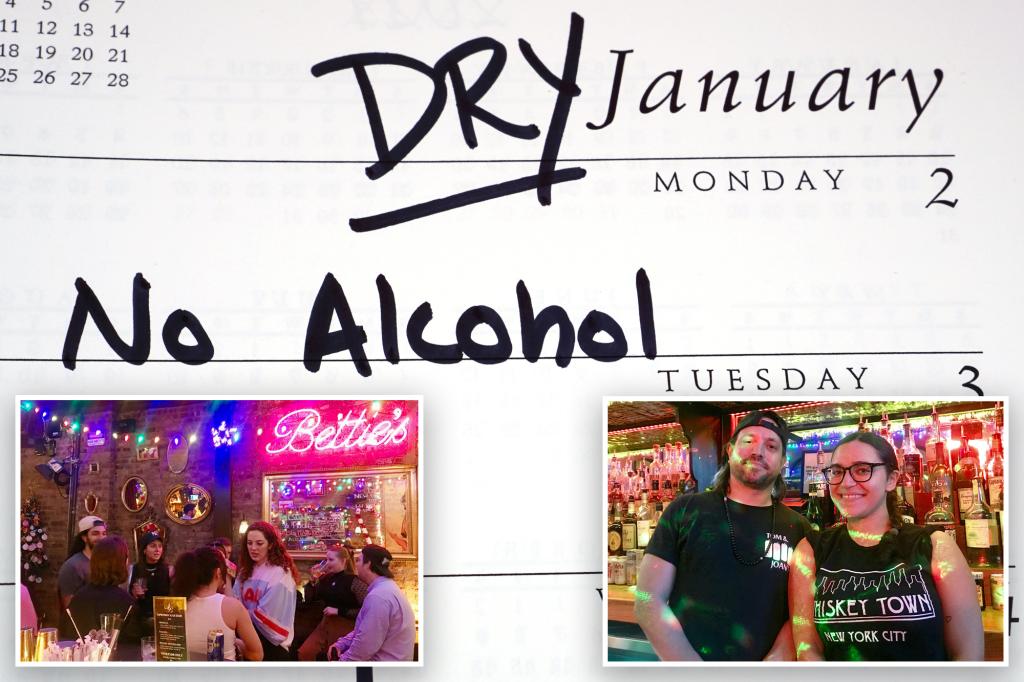The Dry January movement, a trend encouraging abstinence from alcohol throughout the month of January, appears to be waning in popularity, particularly among New Yorkers. While the practice gained significant traction in recent years, with a reported 25% of American adults participating in 2024, the enthusiasm for a sober start to the new year seems to have dissipated. Numerous interviews conducted with New York City residents reveal a widespread rejection of the concept, with many expressing outright disdain for the idea. The reasons for this shift are multifaceted, ranging from social pressures and lifestyle choices to a simple rejection of a trend perceived as overly popular and therefore undesirable.
A dominant sentiment among those interviewed was the perceived incompatibility of Dry January with the social fabric of New York City life. Many individuals emphasized the integral role of alcohol in their social interactions, viewing it as a crucial element of weekend gatherings and a means of navigating the city’s bustling social scene. The prospect of abstaining from alcohol for a month was seen as a significant disruption to their social lives, limiting their options for entertainment and connection. This perspective highlights the cultural significance of alcohol consumption in specific social contexts and the perceived challenges of maintaining social connections without it.
Beyond social considerations, several interviewees cited the stresses of daily life as a reason to continue drinking, suggesting that alcohol serves as a coping mechanism or a means of relaxation. This sentiment reflects a broader societal trend of using alcohol to manage stress and anxiety, a practice that is often normalized and even encouraged within certain social circles. Furthermore, the cold winter weather was cited as a contributing factor, suggesting that alcohol is viewed as a comforting and enjoyable aspect of the season. This perspective aligns with the cultural association of alcohol with specific seasons and occasions.
Another recurring theme in the interviews was a resistance to the trendiness of Dry January. Some individuals expressed a contrarian attitude, suggesting that the very popularity of the movement makes it less appealing. This perspective suggests a desire to differentiate oneself from mainstream trends and maintain a sense of individuality. Additionally, some individuals questioned the logic of abstaining from alcohol for only one month, arguing that such a short-term break would have minimal long-term impact on health or habits. This skepticism about the efficacy of short-term abstinence reflects a broader debate about the effectiveness of temporary lifestyle changes.
While the enthusiasm for Dry January appears to be dwindling among many New Yorkers, the trend has not completely disappeared. Some individuals expressed an intention to moderate their alcohol consumption, adopting a “Damp January” approach rather than complete abstinence. Others acknowledged the potential benefits of a break from alcohol, such as improved sleep, weight loss, and enhanced mood, but expressed difficulty in adhering to a strict month-long abstinence. These individuals represent a segment of the population that recognizes the potential advantages of reducing alcohol intake but struggles with the practical implementation of such changes.
The shift away from Dry January could have significant implications for the hospitality industry. Previous years saw a noticeable dip in bar sales during January, attributed to the growing popularity of the Dry January movement. Ride-sharing services also reported decreased trips to and from bars during this period. If the trend of declining Dry January participation continues, it could lead to a rebound in bar sales and related businesses during the typically slow month of January. However, the rise of non-alcoholic beverage options suggests that a segment of the population is seeking alternatives to alcohol, regardless of participation in Dry January.
The evolving attitudes towards Dry January reflect a complex interplay of social, cultural, and individual factors. While the movement initially gained momentum as a health-conscious trend, its appeal appears to be waning in certain demographics. The reasons for this shift are diverse, highlighting the challenges of implementing widespread lifestyle changes and the enduring cultural significance of alcohol in social life. The future of Dry January remains uncertain, but the current decline in participation suggests a need to reassess the messaging and approach to promoting mindful alcohol consumption. Perhaps a more nuanced approach, emphasizing moderation and individual choice rather than strict abstinence, would resonate more effectively with a broader audience.










